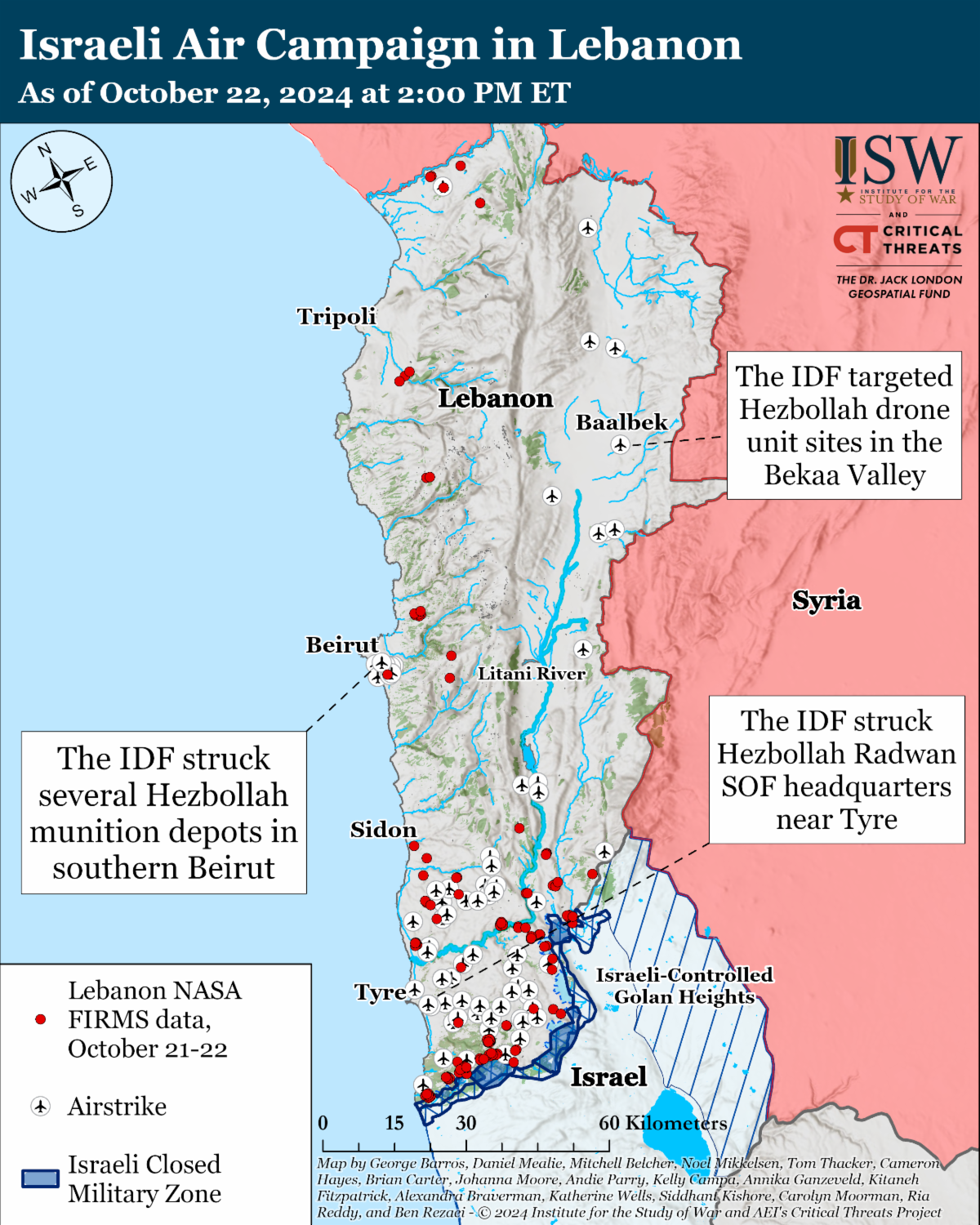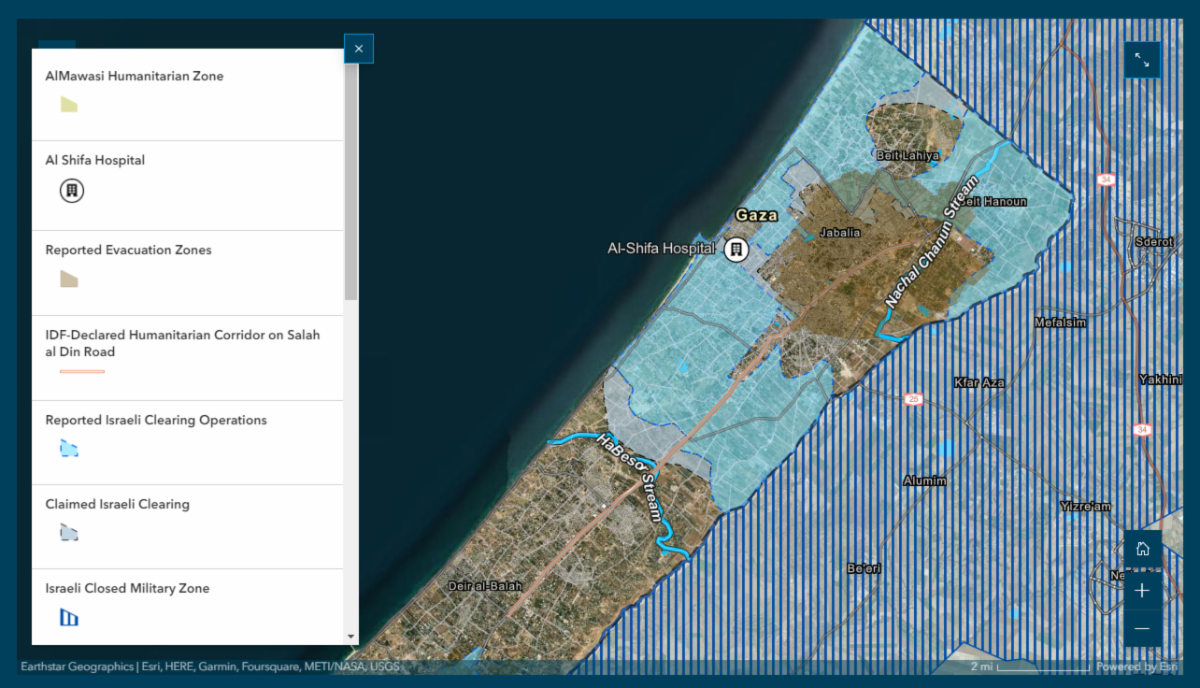A senior Israeli intelligence official told Iranian anti-regime media that Israel’s recent operations in Lebanon have disrupted Iran’s ability to provide funds to Hezbollah. The source stated that Israeli operations targeting key Hezbollah leadership and the Israeli air campaign have significantly disrupted Hezbollah funding. The official stated that Iran used Syria as a conduit to provide Hezbollah with $50 million in cash each month prior to the start of the Israeli operations in Lebanon. IDF Spokesperson Daniel Hagari stated that Iran transfers money to Hezbollah through the transfer of oil and money from Iran to Syria through Hezbollah’s Unit 4400. Hezbollah Unit 4400 is responsible for the transfer of funds and weapons from Iran to Hezbollah. Israel killed the commander of Hezbollah’s Unit 4400, and his subsequent replacement on October 1 and October 21. This report follows recent IDF airstrikes targeting branches of a Hezbollah-affiliated financial institution in Beirut in recent days.
Hezbollah’s chief media official said that Hezbollah is attempting to capture Israeli soldiers. The spokesperson noted in a press conference on October 22 that Hezbollah fighters had come “close” to seizing Israeli soldiers over the past several days but had not yet succeeded. Hezbollah has a long history of taking Israeli soldiers prisoner to exchange for Hezbollah fighters held by Israel. The spokesperson confirmed that Israel had detained Hezbollah fighters since beginning operations in southern Lebanon. The IDF said that it has detained many Radwan fighters and has published clips of their testimony, including statements from fighters that many Hezbollah fighters fled southern Lebanon after Hassan Nasrallah’s death. The Hezbollah official said that “after the war there will be indirect negotiations to recover our prisoners,” suggesting that Hezbollah wants to capture Israeli soldiers for future negotiations.
Hezbollah’s chief media official also noted that Hezbollah had increased the pace of offensive and defensive operations against Israel. Hezbollah Deputy Secretary General Sheikh Naim Qassem said on October 15 that Hezbollah would initiate a new phase of the war designed to inflict high casualties on Israel. Hezbollah’s Operations Room also noted on October 17 that Hezbollah would “escalate” its attacks in the coming days. Hezbollah has since expanded the scope and pace of operations into Israel, including by targeting Israeli Prime Minister Benjamin Netanyahu’s home in Tel Aviv with an attack drone on October 19. Hezbollah has consistently claimed ground engagements in southern Lebanon at a higher rate since the first week of Israeli ground operations, although this may be a result of increased proximity between Israeli and Hezbollah forces as Israeli forces operate in additional areas of southern Lebanon. Hezbollah has conducted at least 39 attacks on Israeli forces, towns, and air assets over the past day. Hezbollah officials have consistently argued that Hezbollah command, control, and logistical networks have returned to full operational capacity after being degraded by Israel’s air campaign in late September 2024.
The Egyptian General Intelligence Service head Hassan Rashad proposed a new “small” ceasefire-hostage deal on October 20 during a meeting with Shin Bet head Ronen Bar. The Egyptian proposal stipulates that Hamas would release a “small” number of Israeli hostages for a “few” days ceasefire in the Gaza Strip. Rashad claimed that the smaller ceasefire-hostage deal would facilitate negotiations to reach a more comprehensive ceasefire-hostage agreement. Bar claimed that there is a window of opportunity to renew hostage-ceasefire negotiations according to an unspecified source “with knowledge of the meeting” who was cited by Axios. Unspecified Israeli officials cited by Axios claimed that Israeli Defense Minister Yoav Gallant supported the proposal while Itamar Ben Gvir and Bezalel Smotrich opposed the plan. US Secretary of State Antony Blinken claimed that Yahya Sinwar’s death presented an opportunity to reach a ceasefire-hostage agreement and urged Israeli Prime Minister Benjamin Netanyahu to seize the opportunity during a separate meeting in Jerusalem on October 22.
Key Takeaways:
- Israeli Air Campaign: A senior Israeli intelligence official told Iranian anti-regime media that Israel’s recent operations in Lebanon have disrupted Iran’s ability to provide funds to Hezbollah.
- Hezbollah Operations in Lebanon: Hezbollah’s chief media official said that Hezbollah is attempting to capture Israeli soldiers. The Hezbollah official said that "after the war there will be indirect negotiations to recover our prisoners,” suggesting that Hezbollah wants to capture Israeli soldiers for future negotiations. Hezbollah’s chief media official also noted that Hezbollah had increased the pace of offensive and defensive operations against Israel.
- Blinken’s Regional Visit: US Secretary of State Antony Blinken met with Israeli Prime Minister Benjamin Netanyahu in Jerusalem on October 22.
- Iran: Iranian Foreign Affairs Minister Abbas Araghchi obliquely threatened Arab states hosting US forces on October 21, which is probably an attempt to pressure Arab states to discourage the United States from using its forces in the region to support an Israeli retaliation against Iran.
- Iranian Intelligence Efforts in Israel: The Israeli Police arrested seven individuals in East Jerusalem on October 22 on suspicion of planning and supporting attacks for Iran.
- Gaza Strip: Geolocated imagery posted on October 21 showed Israeli forces evacuating Palestinians from and distributing water in the area surrounding a former UNRWA medical clinic in northern Jabalia.
| 






 [국방부] 유엔 PKO 기여공약 일환, 여군 PKO 역량강화 교육 시행
[국방부] 유엔 PKO 기여공약 일환, 여군 PKO 역량강화 교육 시행
 [ISW] 러시아의 공세 캠페인 평가, 2024년 10월 22일
[ISW] 러시아의 공세 캠페인 평가, 2024년 10월 22일